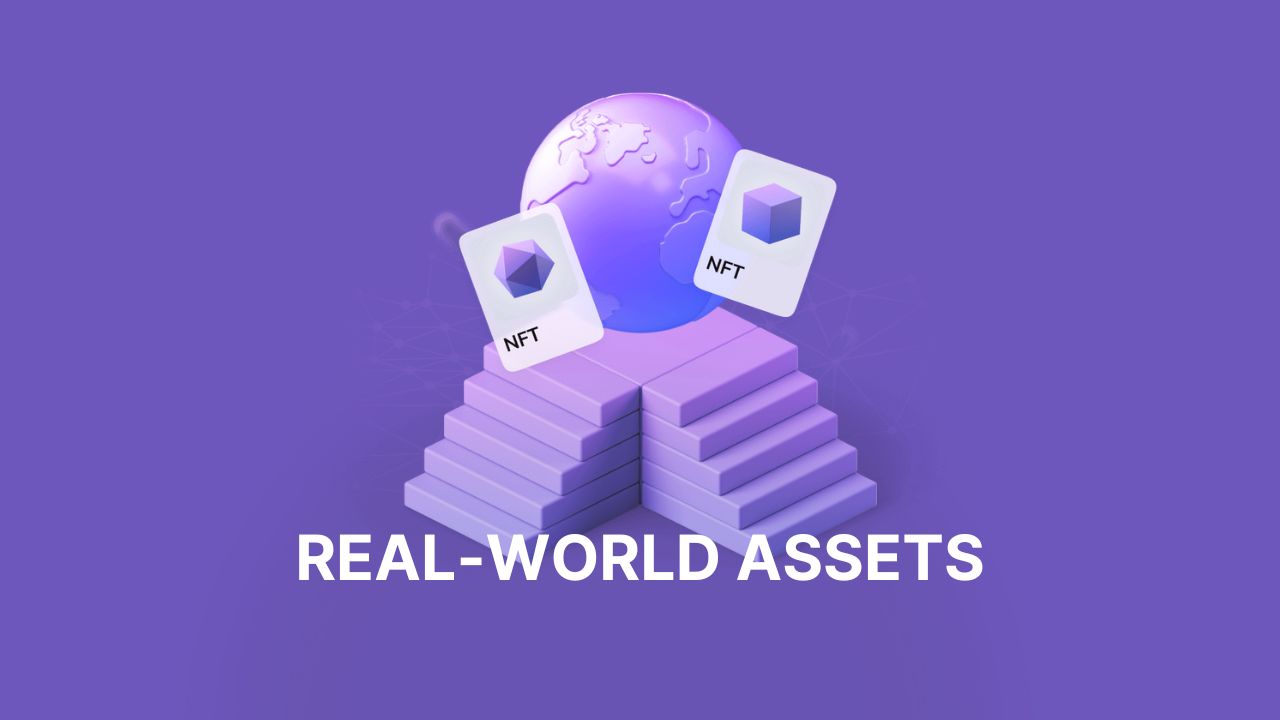If you want to tokenize assets, get it right from the start. At Metlabs we are specialists in real estate asset tokenization, developing tailor-made solutions that are compliant with jurisdiction-specific regulation and ready to scale.
What is real estate tokenization and how does it work?
Real estate tokenization is the process of representing economic or property rights in real estate assets through digital tokens on a blockchain. Each token can represent, depending on the regulation of each country, a direct fraction of a physical asset, such as a building, a house or commercial premises, or an economic right linked to its performance, offering investors the possibility of acquiring shares without the need to disburse a minimum capital.

Benefits of real estate tokenization
Fractional ownership and democratization of real estate investment
Access premium properties from small investments, without traditional barriers.
24/7 liquidity and trading in secondary markets
Buy and sell real estate tokens at any time, with immediate liquidity.
Transparency, traceability and certification of assets
Smart contracts automate and certify processes with full traceability and transparency.
Reduction of costs and intermediaries
Intermediaries and costs are reduced thanks to smart contracts and automation.
Global expansion of real estate investment opportunities
Invest globally in tokenized properties from any country or platform.
We develop your customized platform to tokenize properties
We take your real estate business to the next level with a customized real estate tokenization platform. We facilitate the issuance, management and purchase and sale of real estate tokens in compliance with current regulations.
- Custodial wallet with email registration
- KYC/KYB checks with AML
- Tokenization using ERC-3643 standard
- Issuing and user management backoffice
- Documentation y Onboarding
From physical properties to digital tokens
Real estate tokenization converts properties into digital assets through blockchain technology, managed by smart contracts that automate dividends, entitlements and legal compliance.

What types of real estate assets can be tokenized?
Multiple properties can be tokenized. We adapt to your business model.
- Residential properties: Houses, apartments, condominiums, multi-family buildings…
- Commercial assets: Offices, commercial premises, shopping centers, coworking spaces…
- Industrial assets: Warehouses, warehouses, logistics plants, distribution hubs…
- Luxury real estate: Villas, tourist resorts, unique properties…
- Hotel projects: Hotels, tourist developments or hospitality complexes…
- And more… Land, land under development or any asset with potential.
Contact us and find out how we can help you meeting all your business model needs, from technical validation and structuring to design, development and implementation of custom blockchain solutions, ready to scale from day one.
Use cases in real estate tokenization
Real estate tokenization is already a reality across multiple sectors and regions, enabling new models of investment, financing and ownership. More and more companies and platforms are harnessing the potential of blockchain to transform the management and marketing of real estate assets.
Equity tokenization in real estate developments
Developers can issue tokens representing equity participation in residential or commercial projects prior to their development. This way, construction can be financed without resorting exclusively to debt, offering investors direct exposure to capital gains and dividends generated by the final operation of the asset.
Tokenization of NPLs (Non-Performing Loans) through the blockchain
It converts defaulted loans into digital assets backed by real estate, allowing them to be tranched and traded more efficiently and transparently. Investors gain access to discounted properties with appreciation potential, making it an attractive option for funds, family offices and alternative real estate managers.
REITs, REITs, REITs and tokenized real estate investment trusts
The creation of tokenized REITs (Real Estate Investment Trusts), corporations or digitized real estate funds allows multiple assets to be grouped into a single investment vehicle structured on blockchain. This model offers diversification, greater liquidity and full transparency in management, income distribution and governance.
Real estate crowdfunding powered by blockchain
Tokenization enables more efficient and secure real estate crowdfunding models. Investors around the world can finance new residential, commercial or industrial developments in exchange for tokenized shares that generate rights to future profits.
Management of cadastral data on the blockchain
Blockchain technology optimizes cadastral data management, ensuring traceability, transparency and security. It allows registering, updating and verifying cadastral information in real time, reducing fraud and administrative errors. It is an ideal solution for governments, notaries and companies that require reliable and auditable records.

How to launch a real estate tokenization project?
Asset identification and feasibility analysis
We identify the real estate asset to be tokenized and evaluate its viability from a legal, technical and business perspective. We analyze legal structure, investment model, property characteristics and client needs. This diagnosis allows us to define the functional and regulatory architecture of the future platform.
Legal design, ownership structure and compliance
The optimal legal structure is defined, such as the creation of a Special Purpose Vehicle (SPV), and the smart contracts that will govern the issuance of the tokens are developed. Compliance with securities, crowdfunding and ownership regulations applicable in each jurisdiction is also ensured.
Blockchain development, token issuance and smart contracts
The blockchain infrastructure is designed and implemented, which includes the creation of tokens representing the asset, under standards such as. ERC-3643 or ERC-20 and the development of smart contracts to automate economic rights (such as rental dividends or capital gains) and the programming of compliance rules (KYC/AML) within the platform.
Custody of real estate assets and verification oracles
The physical and legal custody of the asset is managed under international standards, with oracles that connect real-world data, such as valuations, perceived rents or ownership changes, directly to the blockchain. This ensures full traceability and transparency of the tokenized asset.
Post-tokenization operations, dividends and reporting
Automatic distribution of rents (rents, dividends, interest) is activated, participation in governance is enabled (voting, key decisions) and reporting panels are set up for investors. Everything is managed with transparency and traceability thanks to blockchain technology.
Types of tokens applied to real estate assets
Real estate tokenization allows structuring different types of tokens according to project objectives and investor needs.
Security Tokens
These tokens represent a direct ownership interest in the real estate asset. Each holder holds, depending on the jurisdiction, a real fraction of the property or associated economic or political rights such as the collection of rents, benefits from appreciation in value.
Utility Tokens
The tokens allow their holders to access services associated with the asset, such as preferential stays, use of coworking spaces, governance in decision-making, priority access to vacation properties or exclusive advantages in mixed-use projects.
Asset-Reference Tokens
This mode involves the issuance of tokens backed by existing mortgages, real estate loans or underlying assets. It offers investors risk linked to credit performance, ideal for alternative fixed income investment strategies.
Legal framework and international regulation in real estate tokenization
The tokenization of real estate assets involves complying not only with traditional ownership and registration regulations, but also with financial, securities and investor protection regulations. At Metlabs we accompany our clients to guarantee 100% compliant projects from the design stage.
Regulatory compliance
In real estate tokenization, smart contracts must meet legal requirements to ensure the legal validity of transactions.
When a token represents full or fractional ownership of a property, the smart contract that manages its transfer must be legally enforceable. This involves transfer permits, electronic signature under local law, contract law compliant structures and conveyancing rules. In addition, the regulator often requires investor whitelist and oversight at issuance, key requirements from design.
At Metlabs we develop customized smart contracts, under standards such as ERC3643 or ERC20, that automate processes and ensure the legal validity of the transferred rights. We also integrate custodial wallets managed by authorized third parties, ensuring compliance with civil, commercial and registry regulations according to jurisdiction. Thus, our clients operate with confidence on blockchain platforms that are both technologically and legally sound.

Country-specific regulations
- Europe: The Framework MiCA y MiFID II regulate the issuance of cryptoassets, while the classification as security or utility token determines the licensing requirements.
- United States: The SEC regulates real estate tokens under the securities laws; many issues are structured under exemptions such as Reg D or Reg A+.
- Asia: Markets such as Singapore and Japan offer clear regulatory environments for security tokens, encouraging tokenized real estate innovations.
- Latin America: Brazil and Mexico move forward in recognizing digital assets and establish specific frameworks for crowdfunding and digital securities.
- Middle East: Dubai (VARA) enables blockchain real estate registration through the Dubai Land Department, which has launched a pilot program to tokenize property titles.
Smart contracts
In the context of real estate tokenization, smart contracts are not just lines of code: they must comply with legal requirements to ensure the legal validity of transactions.
When a token represents full or fractional ownership of real estate, the smart contract that manages its transfer must be designed to be legally enforceable. This includes transfer permissions, electronic signature mechanisms recognized by local law, contract law compliant structures and ownership transfer rules. In addition, the regulator often requires investor whitelist and oversight at issuance, elements that must be integrated from design.
At Metlabs we develop customized smart contracts under standards such as ERC3643 or ERC20, which not only automate processes, but also ensure the legal validity of the transferred rights. We also integrate custodial wallets operated by authorized third parties, complying with the civil, commercial and registry regulations of each jurisdiction. Thus, our clients can operate with confidence, knowing that their blockchain platform is not only technologically, but also legally sound.
Legal Counsel
At Metlabs we collaborate with more than 30 law firms in different countries to ensure that each real estate tokenization project complies with local and international regulatory requirements.
We specialize in the proper structuring of the legal and financial model, whether through equity tokens, debt or future income. We validate the ownership rights of the underlying asset and ensure its proper registration when necessary.
In addition, we adapt each tokenization platform to the financial, securities and investor protection regulations in force in each jurisdiction, including KYC/AML compliance, prospectuses, licenses and issuance permits.
Our priority is to provide legal certainty, transparency and a sound legal infrastructure so that our clients can issue legally compliant real estate tokens, attract institutional or retail investors and operate without regulatory risk.
Why choose Metlabs to tokenize your real estate project?
Tokenization experts
We develop customized platforms to tokenize real estate assets, integrating blockchain, compliance and investment strategy. With a 100% in-house team in Spain and international experience, we offer solutions adapted to each jurisdiction.
We are your technology partner
We align with you to design and scale secure blockchain infrastructures, combining business vision, technical expertise and continuous support. We help you launch solid, profitable and scalable real estate tokenization projects.
Regulatory compliance
We work with more than 30 law firms to develop robust and compliant tokenization infrastructures. We design legal and technical architectures adapted to each jurisdiction.
Contact us and find out how we can help you meeting all your business model needs, from technical validation and structuring to design, development and implementation of custom blockchain solutions, ready to scale from day one.
Frequently asked questions about real estate tokenization (FAQ)
What are the differences between real estate tokenization and crowdfunding?
Although both allow investing in real estate with less capital, tokenization brings greater liquidity, transparency, blockchain traceability and access to secondary markets. Traditional crowdfunding tends to be more centralized, less scalable and limited to closed terms with no possibility of resale.
Is it legal to invest in tokenized real estate?
Yes. Investing in tokenized real estate is legal as long as the financial regulations of each jurisdiction are followed. Tokens that represent property rights or benefits are often considered regulated securities. That’s why at Metlabs we work together with law firms in more than 30 countries to ensure compliance from day one.
What are the advantages of tokenization over traditional real estate investment?
Tokenizing a property allows access to fractional investment from low amounts, greater liquidity thanks to trading in digital markets, full transparency on the property and its history, reduced operating and brokerage costs and expansion of the investment market globally, among many other advantages.
What types of properties can be tokenized?
All types of assets can be tokenized: residential properties, offices, commercial premises, hotels, industrial warehouses, land, developments under construction or even entire real estate portfolios. At Metlabs we help to legally and technically structure the tokenization of any type of real estate.
Which company develops real estate tokenization projects with blockchain?
Metlabs is a leading developer of blockchain solutions for tokenizing real estate assets. With international expertise, Metlabs designs secure and scalable platforms that enable the conversion of physical properties into digital tokens, facilitate fractional ownership, automate transactions and comply with legal regulations in more than 30 countries.
How much does it cost to develop a real estate tokenization project?
The cost depends on multiple factors such as the characteristics of the platform to be developed, the deadlines, the complexity of the blockchain infrastructure, the legal structuring… At Metlabs we offer customized proposals, adapted to the size and scope of each project.
Contact us and find out how we can help you meeting all your business model needs, from technical validation and structuring to design, development and implementation of custom blockchain solutions, ready to scale from day one.



